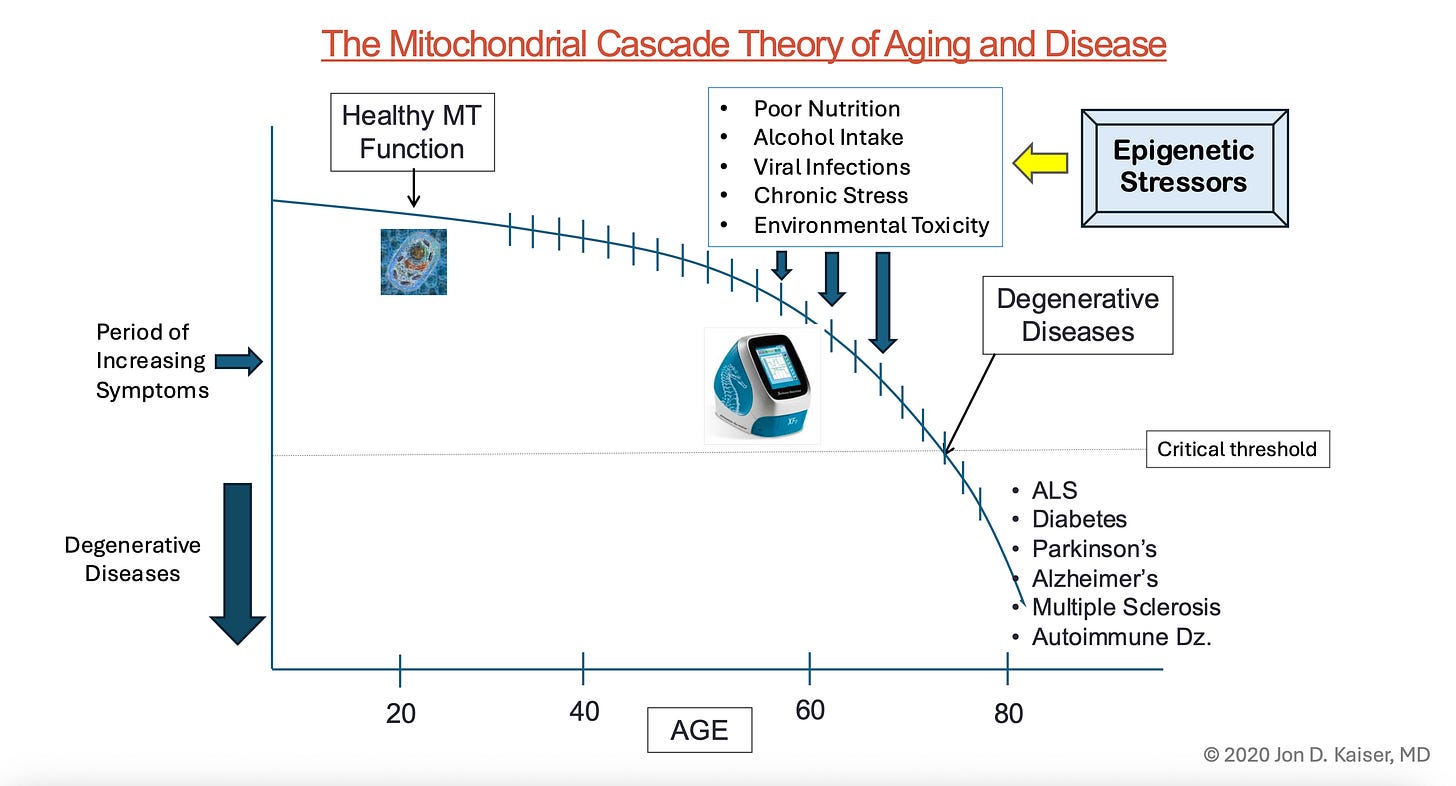The Mitochondria - Plastic - Dementia Connection
Lessons from varied speakers at the Personalized Lifestyle Medicine Conference
This weekend Dr. Kristine Burke spoke at the Personalized Lifestyle Medicine Institute (PLMI) conference on the topic of the Unified Barrier Hypothesis and Reversing Cognitive Decline. More and more conferences are looking for easy, clear ways to empower practitioners to reverse chronic illness and this topic is certainly gathering momentum.
Another talk that really stood out to me was one by Dr. Jon Kaiser, a seasoned functional medicine physician who has long been exploring the role of mitochondria in health and disease.
His talk put forth a simple but powerful thesis: mitochondrial degeneration is the engine of aging and the foundation of chronic disease—including cognitive decline and dementia.
Mitochondrial function has been a key topic of conversation in the last decade as concepts like Dr. Bob Naviaux’s Cell Danger Response model has resonated through medicine with the role of mitochondria at the center.
There are plenty of drivers of mitochondrial dysfunction shared in the graph above, but I liked this slide.
He then spent much of the lecture outlining how environmental toxins—especially microplastics—are accelerating this degeneration across the population.
We’ve written before about the role of microplastics in cognitive decline (you can revisit that blog here), but Dr. Kaiser’s talk reframed the conversation. He presented microplastics as the crisis that could finally trigger a scientific paradigm shift. Drawing from Thomas Kuhn’s classic Structure of Scientific Revolutions, he reminded us that every revolution in science begins with a crisis—when the old model can no longer explain new realities. According to Dr. Kaiser, the mitochondrial crisis brought on by environmental overload, culminating in a tidal wave of dementia cases, may be that inflection point.
And that crisis is here. Rates of cognitive decline are exploding. Younger people are being diagnosed earlier. Care costs are spiraling. The current system is unprepared and outdated. Conventional neurology is managing symptoms—not reversing trajectories.
What Dr. Kaiser called for was bold and more than necessary: an N=400 clinical trial comparing 200 patients receiving conventional neurology care with 200 undergoing precision neurology for Mild Cognitive Impairment —an approach initially popularized by Dr. Dale Bredesen and now being implemented by practitioners through platforms like TruNeura.
This kind of trial wouldn’t just test new methods—it would reveal the cost-effectiveness of root-cause reversal over symptom suppression. Imagine comparing the total cost of care, the improvement in quality of life, the preservation of independence, and the reduction in caregiver burden. That’s what it will take to trigger the paradigm shift.
And here’s the most exciting part: we’re already doing this. In our software, scoring a number of these factors is central to the methodology, creating scores for each patient in
Nutrients and Mitochondria
Chemical Toxins
Biome and BioToxins
We already have dozens of clinics using the software, and all the data for all of the patients has the potential to be the catalyst for this paradigm shift Dr. Kaiser is predicting.
What excites me most is when different thinkers—from different backgrounds—arrive at the same conclusion. When functional medicine veterans like Dr. Kaiser, academic researchers, and digital health innovators all converge on the same signal, you know there’s truth emerging.
Mitochondrial health isn’t fringe anymore. It’s central. And in the next few years, the clinical and economic data will catch up to this truth. Dr Kaiser gave a number of lifestyle recommendations as well as some some treatment recommendations for mitochondria.
And the good news?








